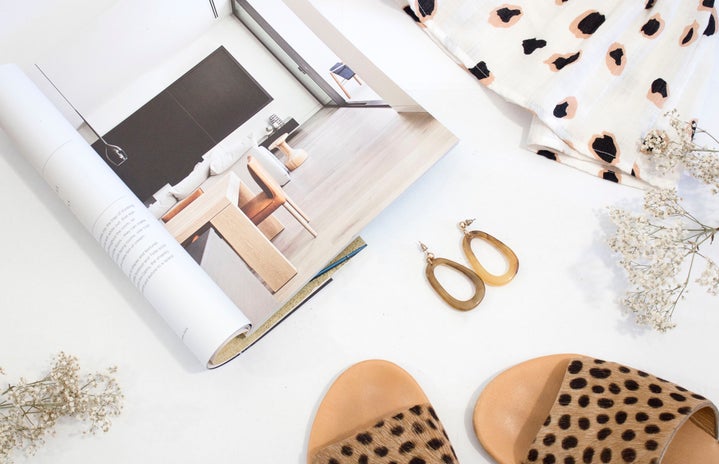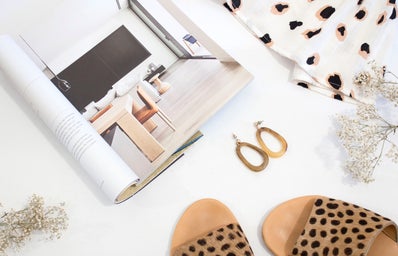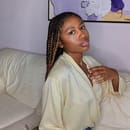Whether you realize it or not, fashion is one of the most important things in the world today. It is how we present ourselves to society, how we communicate with each other and believe it or not, it just might be how we change the world. From the beginning of time, fashion was used to chronicle the most groundbreaking moments in history. It was seen in the shortening of women’s dresses and skirts during the rise of the feminist movement. It was seen in the unofficial, paramilitary uniform of black leather jackets and pants, dark sunglasses, and berets sitting atop the afros of the members of the Black Panther Party as a symbol of power during the Black Power Movement. And it is seen all around us today. So, I figure it’s safe to say fashion is in fact revolutionary.
With every new collection and with every passing trend, we see how this medium of art can be used to communicate a message of who we want to be and what it is that we stand for. With a majority of popular things in society, these changes are often pioneered by Black individuals: the trendsetters of all things pop culture, heck, the creators of pop culture, itself. Black designers, photographers, stylists, and more continue to disrupt the world of fashion with innovative ideas and new perspectives, breaking down boundaries across the entire industry. Blackness within the industry has shifted the conversation of “capitol F Fashion,” giving high fashion a new face and a fresh voice. And it’s about dang time!
In the ever so exclusive fashion industry when we weren’t offered a seat at the table, we built our own and feasted upon it. Designers like Christopher John Rodgers spearhead this shift with the portrayal of the regality of Black beauty through his fantastical perception of color and proportion displayed in his whimsical designs. Rodgers carves out a space for black joy in a way that it has never been represented in the industry, transporting us to a world of fantasy through his unreal display of art.
( https://www.instagram.com/christopherjohnrogers/?hl=en )
Or Kerby Jean-Raymond, founder of Pyer Moss who combines fashion, art, music, and social critique creating the seamless combination of high fashion and activism that appears in Pyer Moss. From his carefully curated all-black choir that performs at his shows to the black models and creatives that work alongside him, he creates a moving and empowering experience for black people that is unprecedented. Experiences powerful enough to move a person to tears. The person being me, yes I have cried watching a Pyer Moss fashion show and I am not ashamed (the spring 2020 collection gets me every time). Through this and through initiatives such as Your Friends in New York where Raymond is creating a space for the next generation of black creatives in fashion, art, music, etc. and working to reimagine the brand and consumer interaction, he provides a fresh perspective that the fashion industry is desperately in need of.
( https://www.instagram.com/pyermoss/?hl=en )
Moreover, we can’t even begin to discuss innovation in the industry without mentioning trailblazers like Anifa Mvuemba, fashion designer, and creative director of Hanifa. The luxury brand is the first to ever hold a 3D virtual fashion show.
( https://www.instagram.com/anifam/?hl=en )
Or Aurora James, of Brother Vellies, who not only works toward sustainable fashion using natural materials in her handmade products but also pioneered the 15 percent pledge, a call to action summoning the world’s largest brands and retailers to allot 15 percent of their shelf space to black-owned businesses.
( https://www.instagram.com/aurorajames/?hl=en )
Or Telfar Clemens who through frequent drops and affordable prices for luxury quality products focuses on accessibility and attainability in the fashion industry.
( https://www.instagram.com/telfarglobal/?hl=en )
Black creatives continue to look toward the future of fashion presenting their work on the basis of authenticity and inclusivity and calling for change to happen both in front of and behind the scenes.
It wasn’t until just two years ago that history was made by young photographer Tyler Mitchell being the first Black photographer to shoot a cover for Vogue Magazine. Two years ago! Despite past belief within the industry, Black photographers are just as important as the models that they are hired to depict. Photographers such as Mitchell stress the urgency of capturing Black beauty, Black joy, and Black freedom in a way that can only be done by Black photographers. ( https://www.instagram.com/tylersphotos/?hl=en ) Also photographers like Antwaun Sargent who through his book ‘The New Black Vanguard’ is generating perceptions of glamour and beauty of fashion on the Black body through the lens of black photographers, a portrayal that has been invisible within the industry.
( https://www.instagram.com/sirsargent/?hl=en )
And even further behind the scenes to lesser-known parts of the industry, fashion historians like Shelby Ivey Christie pull from the past history of fashion tying it into how it relates to fashion today. While the stories of black people in fashion have been relegated to the shadows, people like Christie unearth the impact that Black people have had on current popular fashion and beauty trends. As we see so many forms of appropriation in fashion, being able to reclaim our stories, our beauty, and our impact is imperative.
( https://www.instagram.com/bronze_bombshel/?hl=en ) With black people all throughout the industry fighting for accurate and authentic representation, there is now a voice saying ‘We are here, we have been here, and you can’t ignore us anymore, we won’t have it.’ Talk about shaking the table!
So what is it? What is the secret sauce that major fashion houses are so desperately trying to get a hold of? How are we doing it? Through joy. Through the celebration of uniqueness in the black community. Through the reclaiming of black history and the retelling of our story from our own perspective. Showcasing all types of black people in ways the industry has never allowed us to be seen, in a way that is regal and joyful, which should be normalized within the industry. It is through this that Black creatives are influencing this industry that has operated in a space of elitism and exclusivity to slowly remove the arbitrary obstacles that ostracize certain people. Black designers, photographers, historians, stylists, and more are using new ways to redirect the industry back to its ethos: communication, expression, and the broadcasting of beauty in all forms. Using this medium to spark conversation, raise questions, and evoke emotion all while turning heads at the sight of a stunning outfit. Current and rising generations of black creatives in the industry are deliberate in their approach of carving out space for themselves in a fashion that is so exigent and awe-inspiring that there is no choice but to revel in all that it is and anticipate all that it could become. Get ready.



